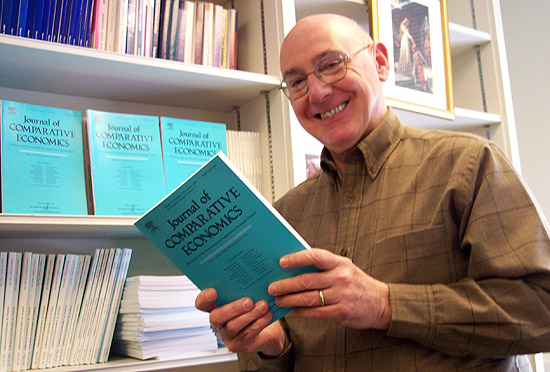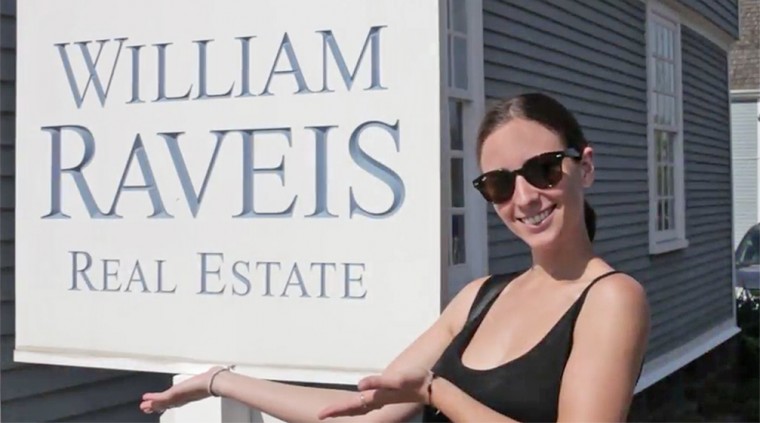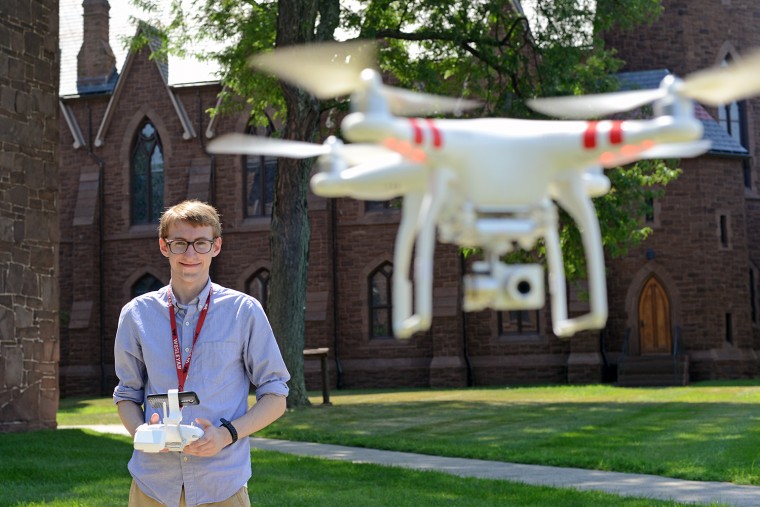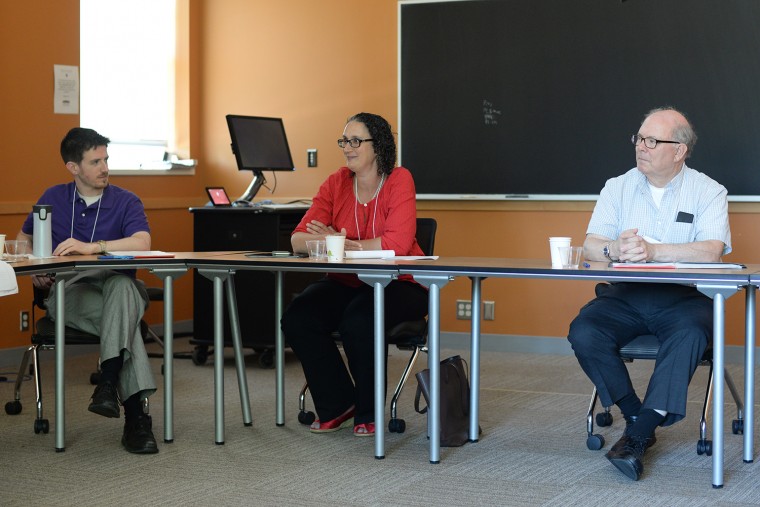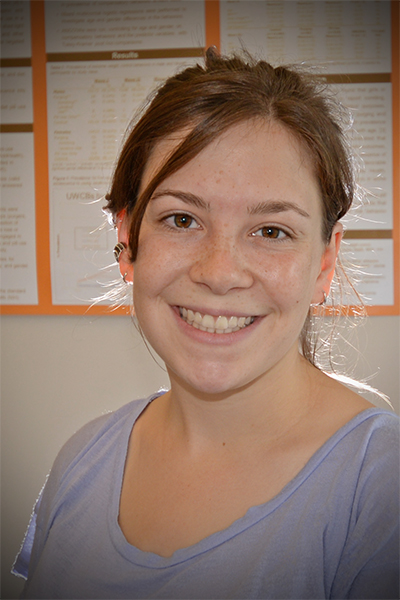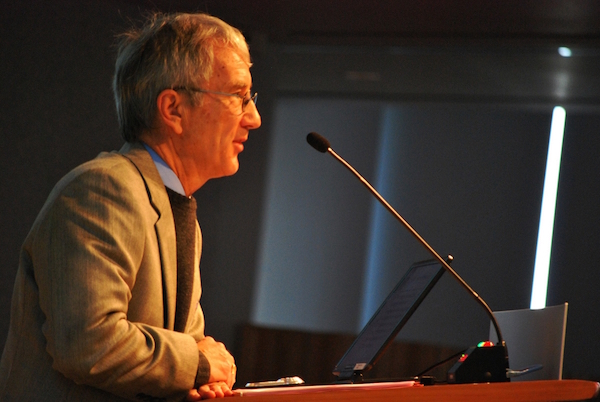Richard Grossman, professor of economics, and Masami Imai, professor and chair of economics, professor of East Asian studies, are the authors of an op-ed published in The Guardian about House Speaker John Boehner's likely next move when he retires from Congress. The op-ed is titled "Whoever hires John Boehner post-Congress will make a terrible investment." They anticipate that, like most former members of Congress and high ranking members of the executive branch, Boehner is likely to have his pick of lucrative job offers—to become an investment banker, lobbyist or corporate adviser. "But for any of these companies, John Boehner would be…
Joyce Jacobsen has accepted an appointment as Provost and Vice President for Academic Affairs through June of 2019. Jacobsen joined the Wesleyan faculty in 1993 as an assistant professor of economics and in 2003 became the Andrews Professor of Economics. More recently, she served as Dean of Social Sciences and Director of Global Initiatives. A scholar of the economics of gender and employment, she is the author or co-editor of three books, including The Economics of Gender, Third Edition (2007), as well as numerous journal articles, book chapters, reviews and essays. Her outstanding contributions as an inspiring scholar-teacher were recognized…
Associate Professor of Economics Abigail Hornstein presented a paper at the 2015 American Financial Management Association Meeting, held in Orlando, Fla. Oct. 14–17. Hornstein's research paper, titled "Board Overlaps in Mutual Fund Families," is co-authored with Elif Sisli Ciamarra of Brandeis University. Hornstein also was a discussant on a paper titled "Mutual fund home bias and market uncertainty" by Nicole Choi of the University of Wyoming and Hilla Skiba of Colorado State University.
Professor of Economics Richard Grossman provided an "expert view" on the question "Will Japan's economy rebound under Abenomics and resume its growth?" in an issue of SAGE Business Researcher on "Doing Business With Japan." Japan's economy has performed poorly during the past two decades, and many wonder if it will ever "recover its former glory." Grossman took the affirmative view, arguing "there is good reason to believe that Japan will emerge from its funk and achieve growth rates similar to those of its counterparts in the developed world." He writes that the prospects for success depend on the effectiveness of Prime Minister Shinzo Abe's…
John Bonin, the Chester D. Hubbard Professor of Economics and Social Science, was the invited keynote speaker at the 5th annual CInSt Banking Workshop, hosted by the Center for International Studies at the National Research University Higher School of Economics in Moscow, Russia on Oct. 2. The theme of the conference was "Banking in Emerging Markets: Challenges and Opportunities." Bonin's talk was titled, "Did foreign banks 'cut and run' or stay committed to emerging Europe during the crises?" Bonin presented research he did together with Dana Louie '15. They examined the lending behavior of foreign banks during the global financial crisis and at the onset…
Assistant Professor of Economics Damien Sheehan-Connor is the author of an oped in the Orlando Sentinel (available to subscribers) arguing that raising the gas tax would not only help the environment, but would save lives on the road. Sheehan-Connor considers the findings of a new study out by the National Safety Council, which suggested that automobile accidents are on the rise again after years of decline. While many factors could potentially contribute to this reversal, he writes that it's likely that two seemingly positive developments--lower gas prices and stricter fuel economy standards imposed by the government--have played an important role. How? Lower…
Phoebe Keegan '16, an economics major from Palisades, N.Y., has been passionate about real estate since she was a young child. She passed the exam to get her real estate license in New York at age 18, the youngest age allowed. After coming to Wesleyan, she also became a licensed agent at William Raveis in Middletown. This summer, Keegan worked at the Quantitative Analysis Center with Assistant Professor of Economics Karl Boulware to analyze data from the New York City Housing and Vacancy Survey, specifically looking at conditions before and after the rezoning of downtown Brooklyn. They are studying how rezoning affected…
In this News @ Wesleyan story, we speak with David Schwartz from the Class of 2017. Q: David, where are you from and what is your major? A: I grew up in Amherst, Mass. When I first came to Wesleyan, I walked around wearing my Amherst sweatshirt for awhile before realizing there was a bit of a rivalry. I’m an Economics and Government double major, with a minor in data analysis. I’m particularly interested in applying “big data” techniques to government policymaking. Q: You are founder and president of the Wesleyan Radio Control/ Drone Club. How did your interest in…
Assistant Professor of Economics Damien Sheehan-Connor is the author of "Environmental Policy and Vehicle Safety: The Impact of Gasoline Taxes," published in the July 2015 issue of Economic Inquiry. In the paper, Sheehan-Connor considers the impact that policies to reduce carbon emissions by vehicles, such as fuel economy standards and gasoline taxes, have on vehicle weight and, consequently, on safety. The paper develops a model that separately identifies the impact of vehicle weight on mortality and selection effects that impact accident propensity. He found that the safety externalities associated with heavy vehicles are greater than the environmental ones; that under fuel economy…
In this News @ Wesleyan story, we speak with Joli Holmes from the Class of 2017. She is one of 24 students in the Quantitative Analysis Center's Summer Apprenticeship Program. Q: Joli, what is your major and what’s your specific area of interest? A: I’m an economics major. I'm particularly interested in studying investment-related practices from an environmental and social perspective. Q: Have you worked in the Quantitative Analysis Center before this summer? A: I’ve taken a lot of classes through the QAC, including “Working with R,” “Excel with Visual Basic for Applications,” and “Python.” These are all classes on how to use…
Gary Yohe, the Huffington Foundation Professor of Economics and Environmental Studies, was reappointed by Mayor Bill DeBlasio to the third New York City Panel on Climate Change on June 30. Yohe and 18 other experts are tasked with ensuring that the best available climate science continues to inform the city's resiliency planning. The panel will build on reports by previous panels, and will "look at climate risks through the lens of inequality at a neighborhood scale, as well as focus on ways to enhance coordination of mitigation and resiliency across the entire New York metropolitan region," according to a press release from the…


